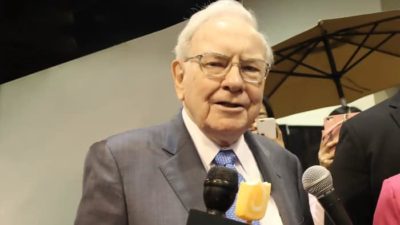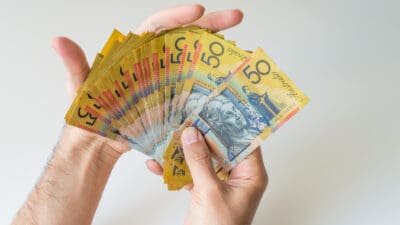Some of the best-performing shares over the last decade or two have been platform companies. Think how strongly shares like Meta Platforms (Facebook), Microsoft, Alphabet, and Amazon.com have done for investors.
Fund manager Amit Nath from Montaka Global Investments recently explained why investing in platforms can be very rewarding, and revealed what sorts of things to look for.
What is a platform company?
The idea of a strong platform technology company is one that brings together groups of users to build communities and create markets, facilitating interactions, transactions, and exchanges of products and services, according to Nath.
As more customers and merchants join the system, it benefits from increasingly strong network effects.
What are some examples of platform companies?
For example, Visa and Mastercard are platform companies that have built incredibly powerful payment platforms. As each new merchant and bank joined the infrastructure, it increased the attractiveness to card users. With more card users, merchants can get access to more customers wanting to pay with that method.
The fact the cards can work internationally, and for online purchases, is an incredible offering that would be very hard for a competitor to replicate.
Windows and Android, from Microsoft and Alphabet respectively, are two technology platforms that have built extremely strong market positions, attracting more users and technology partners, reinforcing their positions.
Nath wrote:
The most critical piece of a platform is its ability to create self-reinforcing network effects. At the most basic level, a network effect occurs when the addition of another user to the platform increases the value of the service for others. The value of Facebook increases as more people use it, there are more people to connect with, more content is shared, more opportunities for it to be seen and hence more advertising dollars are attracted. As this virtuous cycle starts gathering pace and scales (i.e., flywheel), it has incredible gravity, and ultimately can deliver huge investment returns.
Beware the dangers
However, the expert from Montaka warned that not every business has an endurable network effect.
Some companies may only be addressing a much smaller market than they say and some may be facing some of the world's strongest competitors.
According to Nath, we may be able to tell that a business isn't as strong as it seems if it "cannot capture incremental customers in a cost-efficient way, or fully monetize its existing customer base without losing them to a competitor (churn)". Nath pointed to Zoom and Peloton as two examples where the platform wasn't as strong as expected.
To avoid losers like that, Nath suggested staying away from businesses that directly compete with a genuine platform and avoiding early-stage platforms.
Which ASX shares could count as platform companies?
There are a few platform ASX shares that have done very well and demonstrate some of the characteristics that Nath has talked about. These include companies such as Xero Limited (ASX: XRO), REA Group Limited (ASX: REA), SEEK Limited (ASX: SEK), Carsales.Com Ltd (ASX: CAR), WiseTech Global Ltd (ASX: WTC), Altium Limited (ASX: ALU), TechnologyOne Ltd (ASX: TNE), and Pro Medicus Ltd (ASX: PME).
None of these ASX shares are trading at a very cheap price, although they've all had strong 12 month periods to varying degrees.
Indeed, all of the businesses I've mentioned have delivered strong long-term growth and there could be more success to come.









